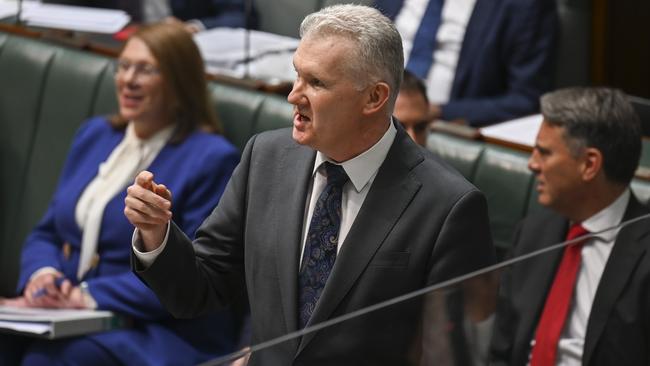Workplace reforms to apply to minimum wage case
Acting Fair Work president Adam Hatcher says Labor’s industrial relations changes will have a significant impact on the commission’s work.

Employers and unions have been told to address new job security and gender equality objectives when making submissions to the annual review that decides wage increases for the nation’s low-paid workers.
In a statement, acting Fair Work Commission president Adam Hatcher said Labor’s industrial relations changes would have a significant impact on the work of the tribunal.
Mr Hatcher said new job security and gender equality objectives, and the amendments to the modern awards and minimum wages objectives, will apply to applications currently before the commission as well as the next annual minimum wage review.
He said the amendments had the potential to significantly impact users of the commission’s services and the tribunal was committed to implementing them “in an open and transparent way and with the needs of our users in mind”.
“Over the coming months we will engage directly with a range of stakeholders about the implementation of the reforms, including community organisations, our workplace advice service partners, registered organisations, peak councils and the commission’s reference groups, including the small business reference group,” he said.
“The commission is also committed to conducting a review of the implementation of the reforms to ensure that the reforms have been implemented in a way that meets the needs of our users and to identify opportunities to further improve the services we provide.”
The changes commence in stages over the next 12 months, with the new multi-employer bargaining provisions starting on June 6.
“There are a number of significant changes to the enterprise bargaining and enterprise agreement approval processes that will commence on 6 June 2023, or an earlier date to be fixed by proclamation,” Mr Hatcher said.
“The commission has commenced planning for the implementation of these changes. The commission anticipates allocating additional member resources to support the enterprise bargaining reforms.
“As with the other reforms, the commission intends to consult broadly on implementation of the changes to enterprise bargaining and agreement approval.
“The current provisions relating to enterprise bargaining and agreement approvals [including the better off overall test] will continue to apply until the commencement date of the amendments. Over the coming months, the commission will publish further information about the changes to the bargaining and agreement approval provisions.”
Changes that have immediate effect include the ban on pay secrecy clauses, restricting employers from unilaterally applying to terminate pay deals and the sunsetting of “zombie” agreements.






To join the conversation, please log in. Don't have an account? Register
Join the conversation, you are commenting as Logout